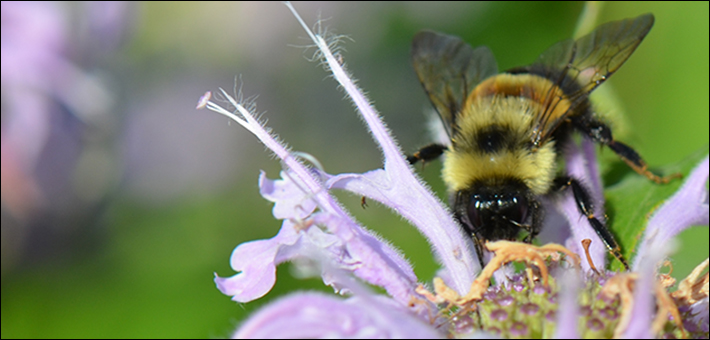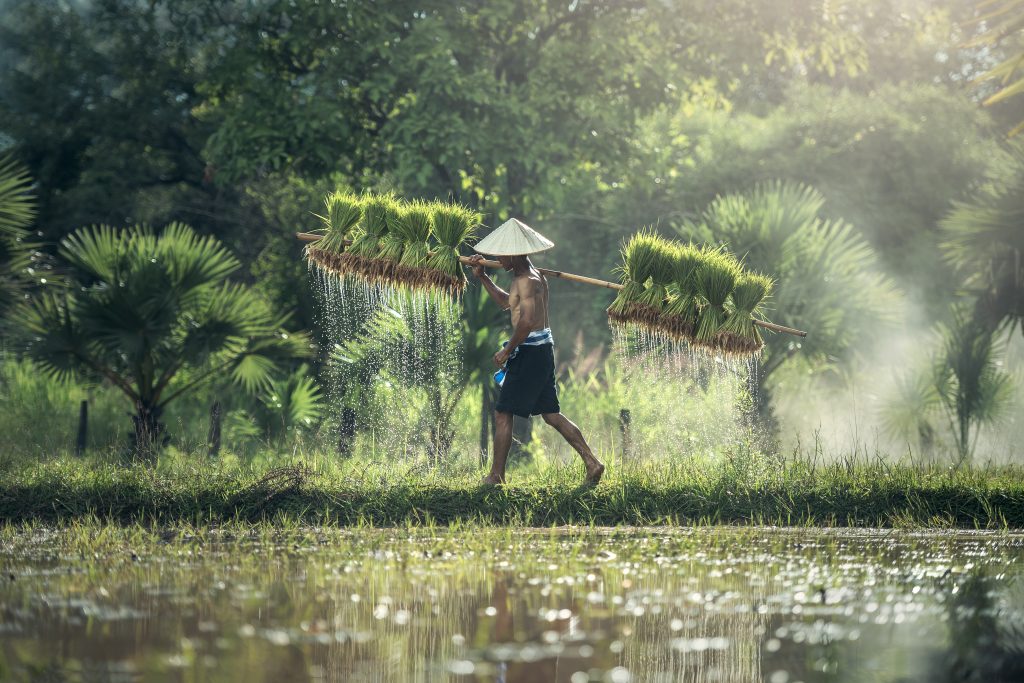A new pesticide is all the buzz
Bees’ fuzzy yellow bodies and hairy legs are custom-built for picking up pollen. Nothing can distribute the yellow powder more efficiently—something farmers that shell out for commercial beehives every growing season know all too well. And starting with this fall’s growing season, bees may be given some cargo to carry on their outbound journey to the blossoms: pesticides.
Biological controls viable alternative to pesticides for rice farmers in China
Between 2011 and 2015, CABI set up 22 Trichogramma rearing facilities as part of a project to promote the use of biologically-based Integrated Pest Management (IPM) for rice and maize crops. In addition to creating the Trichogramma rearing facilities, IPM strategies for rice and maize were developed in Southwestern China, Laos and Myanmar.
How can tomato farming be improved in Kenya? Study finds producers face a ‘myriad of constraints’
In a recently published paper in Scientific African, CABI’s Willis Ochilo led on a study which captured a better understanding of tomato producers in Kenya, describing in detail the production practices in order to identify challenges and opportunities for increasing tomato productivity for the country’s smallholder communities. Tomato is a good source of vitamins A…
CABI-led £1.6 million collaboration helps reduce China’s reliance on harmful pesticides
A CABI-led project involving an international team of remote sensing and plant protection experts is helping China reduce its reliance on harmful pesticides to fight crop pests and diseases including yellow rust fungal disease of wheat and locusts. The £1.6 million STFC Newton Agri-Tech Fund-financed project is leaving a lasting legacy in helping the Chinese Government…
Unregistered herbicides use rampant among smallholders
By Alex Abutu. Reblogged from SciDev.Net. African rice smallholders are increasingly using low-quality, unregistered herbicides because of inadequate capacity of governments to enforce strict monitoring of national pesticides regulations, a study says.
Using rice to filter pesticide runoff
Rice has been a staple food crop for millions of people for hundreds of years. This important crop is now a major part of 20% of the world’s population, with it being grown on every continent except Antarctica.Whilst rice is known to be an important part of our diet, recently published research has shown how…
“Our crops have answers”
Kanyumbu village is a compact rural farming village in Lilongwe district in Malawi. Farmers in this village mostly produce maize, beans, and mangoes from a few trees scattered in their fields. In 2013, they received a new service from the Department of Agriculture; a plant clinic, with a plant doctor. They were informed that they…
New coalition puts knowledge and skills into the hands of those who need it
CABI has joined forces with the ISEAL Integrated Pest Management (IPM) Coalition in the fight to implement better, less chemical-dependent, ways for farmers to manage agricultural pests and diseases that account for around 40% of lost crops worldwide. By linking with the Plantwise Knowledge Bank, the coalition aims to share knowledge on sustainable pest management…
Can farms maintain productivity while reducing pesticide use?
A new UN report states that it is dangerously misleading to suggest that pesticides are necessary to achieve food security. Instead, the report recommends that farms reduce pesticide use and adopt sustainable practices that protect crops from pests by enhancing biodiversity and natural enemies. This agroecological approach eliminates reliance on, and exposure to, expensive and toxic…









